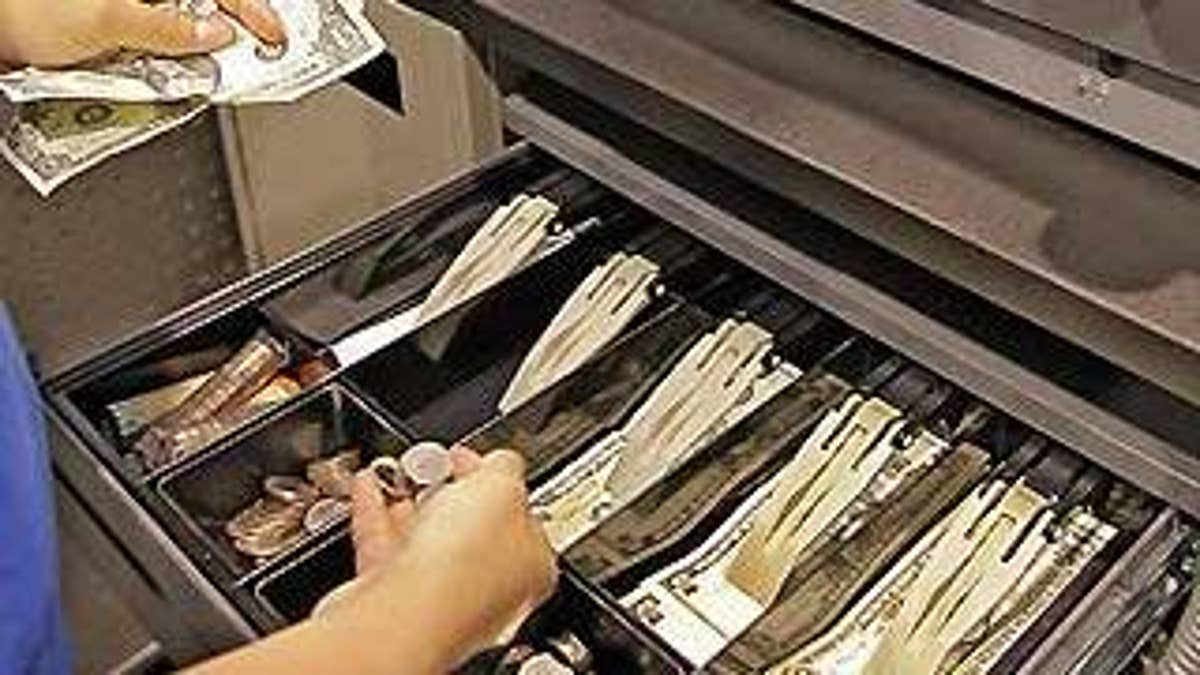
As lawmakers toy with the idea of an across-the-board sales tax on just about everything, tax reform advocates are starting to drum up opposition with the same fervor they employed during last month's anti-tax tea parties.
The idea of a national sales tax was once unlikely. But now that the federal government is doling out billions in stimulus spending and bailouts, and looking for billions more for health care reform, the prospect could be gaining some traction.
The frenzy over the idea kicked up after a Washington Post article Wednesday reported that Congress is starting to pay closer attention to this largely academic proposal and that the Obama administration, though shushing speculation, is soliciting advise from supporters of the idea.
"It should certainly raise alarm bells that they think they can inject it into the debate," said Phil Kerpen, policy director at Americans for Prosperity.
The value-added tax, or VAT, as it is called, amounts to a tax-on-everything -- or TOE, for the acronym-inclined. It's a tax on goods that's applied in pieces throughout the chain of production and distribution and results in an increase in the cost of virtually everything you buy.
Aside from raising revenue for the government, the move could have a number of things going for it, say proponents -- it's tough to evade, it's simple by comparison to the income tax and it encourages saving.
Some conservatives have called for something similar -- the so-called Fair Tax -- that would replace the federal income tax system with a national retail sales tax.
But critics of the VAT say it would almost certainly not be implemented as a replacement for the income tax system -- rather, it would be just another tax, on top of the income tax, the state sales tax and everything else.
"This isn't a tax reform proposal that the White House is talking about. This is a new source of income for the government," said Max Pappas, public policy vice president at FreedomWorks. "The government needs big taxes and we've got big government, so now they're trying to decide how to pay for it."
It's unclear how far along the idea is on Capitol Hill.
"That's not something that I understand is under discussion," White House Press Secretary Robert Gibbs said Thursday. A White House official also told the Post it's "unlikely" to be tapped to pay for health care reform.
But Sen. Kent Conrad, D-N.D., chairman of the Senate Budget Committee, was open to that idea, and the article noted that one of Budget Director Peter Orszag's health care advisers is a VAT advocate and Paul Volcker, the former Federal Reserve chairman who's now an Obama economic adviser, is at least willing to hear arguments.
Leonard Burman, co-director of the Tax Policy Center, wrote in a Virginia Tax Review article last month that the tax-on-everything could finance health care reform, and could reach a rate of 25 percent.
One of the chief criticisms of the consumption tax is that it is regressive -- it would hurt the poor the most. Because lower-income earners use a greater percentage of their income for consumption, the tax could end up being a bigger burden on the poor.
But Burman argued in a separate article for the review that using the revenue from the tax for health care would offset this effect, since "the voucher would be worth more than the VAT tax paid by most households."
If that's the best-case scenario, critics see a worst-case scenario that is devastating. Though the tax is used throughout Europe, opponents cite Europe's rapid growth in government over the past several decades as one of its potent negative side effects.
Pappas said the system would be exploited to grow government over the decades, since the tax is relatively easy to obscure.
"This is a big deal," he said. "This fundamentally changes the size of government indefinitely, permanently, and you can see that by the expansion in Europe over the past 40 years."
Plus it could have the unfortunate effect of discouraging spending in a time of recession -- effectively serving as an anti-stimulus.
Critics saw Wednesday's article as a trial balloon, which may or may not find its way into real-world negotiations over revenue raising.
It's not so outrageous considering proposals that are already being discussed. A memo circulated at a recent Senate Finance Committee meeting floated the possibility of a federal excise tax on sugary drinks -- not just sodas, but fruit and vegetable drinks, energy drinks, ice teas, iced coffees and flavored milk drinks.
An across-the-board consumption tax could make that look pleasant by comparison, since it's more than a sin tax -- it's a tax on virtuous and moral-neutral items as well. Small-government advocates, though, have pledged to fight both ideas.
"A VAT is among the most regressive tax schemes that can be imposed, and is a direct violation of Obama's no-tax-hike promise," Ryan Ellis, tax policy director at Americans for Tax Reform, wrote Wednesday on his group's Web site. "VATs are a gateway drug to more government spending."





















